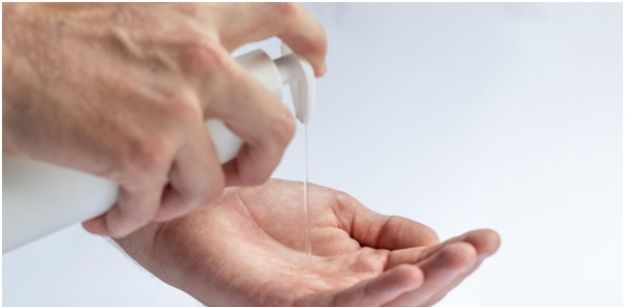Recently a bold new position regarding antibacterial soap has been declared. Manufacturers must show that their soap is both safer and more effective than washing with water and conventional soap. Otherwise, it will be taken off the shelves within the next few years.


A majority of soaps that are liquid antibacterial use the chemical triclosan for active ingredients. About 25% of soaps are liquid, and 30% of soaps are hard bars, and they use it. This drug was initially used in hospitals but was later adopted by soap manufacturers and other home products(such as hand soaps). It is now worth approximately $1 billion. We’ve started using the chemical in soaps, hand gels, and cutting boards. As we strive to eliminate any trace of bacteria from our environment, we also use it in home products such as wipes, mattress pads, and other household items.
The FDA never evaluated triclosan’s potential use in home-based over-the-counter products. Incredibly, they were ordered by the FDA to create guidelines for the use of triclosan in home-use products in 1972. However, their final draft was published not long ago. The result of decades of research reports states that antibacterial soaps are expensive and have few benefits. This forces manufacturers to prove it.
Bottom line: Manufacturers have until the last decade for this to happen, or they can pull their products off the shelves. We are here to inform you that it is not a good idea to wait to get rid of antibacterial soaps. Here are five reasons this is true:
1. Antibacterial soaps do not perform better than regular soap and water. As stated in the announcement, 42 years of FDA research and countless independent studies have not produced any evidence that triclosan has any health benefits.
Although manufacturers claim they have evidence that triclosan is superior in efficacy, the dispute stems from different testing methods. The results of tests that measure the number of bacteria in a person’s hands following use show that soaps containing triclosan kill slightly fewer bacteria than those that are more conventional.
The FDA needs data to show that this has clinical benefits, such as a lower incidence of infection. Studies of the health benefits have not shown any evidence that triclosan reduces the transmission of respiratory and gastrointestinal infections. This could be because antibacterial soaps target bacteria but not viruses that cause most seasonal colds and cases of flu.
2. Antibacterial soaps can lead to antibiotic-resistant bacteria. FDA requires manufacturers to prove that these soaps are effective. This is due to a variety of health risks associated with triclosan. Bacteria resistance is the first.
Heavy antibiotic use can lead to resistance. This is a result of a small number of bacteria with a random mutation that allows them to survive exposure to the chemical. It can kill other bacteria if it is used often enough. However, this chemical will allow the resistant subset of bacteria to grow. This can render the chemical ineffective against the particular strain of bacteria if it happens on a large enough scale.
This is a major problem in medicine. The World Health Organization considers it a threat to global health security. Many bacteria species, most notably MRSA, have developed resistance to multiple drugs. This complicates efforts to manage and treat the spread of infections. Although health officials claim that more research is required before we can determine if triclosan is fueling resistance, many studies suggest that this possibility exists.
3. Some soaps may act as hormone disruptors. Numerous studies have shown that triclosan interferes with the body’s regulation and use of thyroid hormone in rats, frogs, and other animals. This could be because the chemical structure of the soap is similar enough to the hormone that it can bind to the receptors. If this is the case in humans, too, there are worries that it could lead to problems such as infertility, artificially-advanced early puberty, obesity, and cancer.
Although these same effects have not been confirmed in humans yet, the FDA considers animal studies “a concern” and notes that the risks are likely to be too low given the limited benefits of long-term use of triclosan.
4. Other health issues could also be caused by soaps. It has been shown that children who are exposed to triclosan for a prolonged period of time have a greater chance of developing allergies. This includes peanut allergies and hay fever. Scientists believe this may be due to a decreased exposure to bacteria, which is necessary for the proper functioning of the immune system and development.
A second study showed that triclosan could interfere with muscle contractions in human cells as well as muscle activity of live mice and minnows. This is particularly concerning considering other findings that triclosan can penetrate the skin and get into the bloodstream much more easily than initially thought. Discovered triclosan in the urine of 75% of those who were tested in a 2008 survey.
5. Antibacterial soaps can be harmful to the environment. Trichloro soaps can cause a lot more triclosan to be flushed down the toilet. Research shows that even small amounts of the chemical can remain in the environment after treatment at sewage plants. As a result, USGS surveys frequently found it in streams or other bodies of water. Once in the environment, triclosan can disable algae’s ability to photosynthesize.
It is also fat-soluble, meaning that it builds up within fatty tissues. Scientists are concerned that the chemical could biomagnify, appearing at higher levels in the tissues and organs of animals at the top of the food chain as the concentrated triclosan from all plants and animals below it. Surveys of bottlenose dolphins off Florida and South Carolina revealed alarming levels of the chemical.
As a final: What is recommended to do?
There are a few options if you don’t want to give up antibacterial soap, such as knowing how to make soap by yourself.
Another option is a non-antibiotic hand sanitizer. These don’t contain any triclosan. They simply kill bacteria and viruses using good old-fashioned alcohol. Hand-washing effectiveness is dependent on how long you wash your hands. Therefore, it might be easier to use a quick spray of sanitizer if time is short.
The CDC recommends that you wash your hands with soap and water, except in hospitals. While alcohol from hand sanitizer can kill bacteria, it does not remove dirt or other substances you might have touched. A simple hand wash will suffice. You don’t have to heat the water. It’s best to scrub for around 30 seconds, at least



